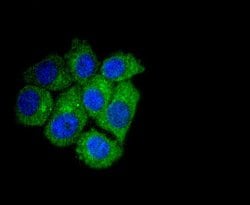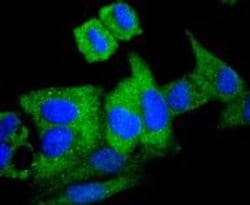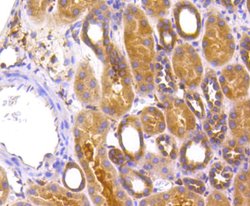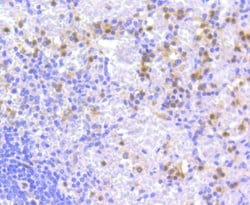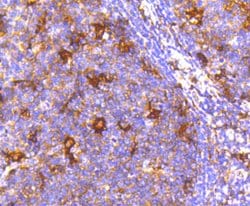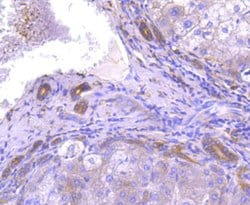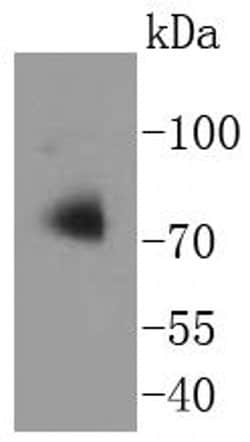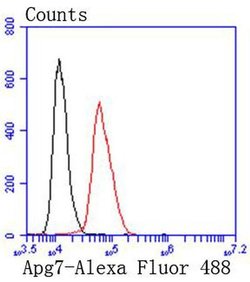Learn More
Invitrogen™ ATG7 Recombinant Rabbit Monoclonal Antibody (SC06-30)
Rabbit Recombinant Monoclonal Antibody
Supplier: Invitrogen™ MA532221
Description
Recombinant rabbit monoclonal antibodies are produced using in vitro expression systems. The expression systems are developed by cloning in the specific antibody DNA sequences from immunoreactive rabbits. Then, individual clones are screened to select the best candidates for production. The advantages of using recombinant rabbit monoclonal antibodies include: better specificity and sensitivity, lot-to-lot consistency, animal origin-free formulations, and broader immunoreactivity to diverse targets due to larger rabbit immune repertoire.
This gene was identified based on homology to Pichia pastoris GSA7 and Saccharomyces cerevisiae APG7. In the yeast, the protein appears to be required for fusion of peroxisomal and vacuolar membranes. The protein shows homology to the ATP-binding and catalytic sites of the E1 ubiquitin activating enzymes.
Specifications
| ATG7 | |
| Recombinant Monoclonal | |
| 1 mg/mL | |
| TBS with 0.05% BSA, 40% Glycerol and 0.05% sodium azide; pH 7.4 | |
| O95352 | |
| ATG7 | |
| Synthetic peptide within Human Apg7 aa 654-703. | |
| 100 μL | |
| Primary | |
| Human | |
| Antibody | |
| IgG |
| Flow Cytometry, Immunohistochemistry (Paraffin), Western Blot, Immunocytochemistry, Western Blot | |
| SC06-30 | |
| Unconjugated | |
| ATG7 | |
| 1810013K23Rik; Agp7; APG7L; APG7-LIKE; ATG12-activating enzyme E1 ATG7; Atg7; ATG7 autophagy related 7 homolog; Atg7l; autophagy related 7; autophagy related 7 homolog; autophagy-related 7; autophagy-related protein 7; DKFZp434N0735; Gm21553; GSA7; hAGP7; ubiquitin-activating enzyme E1-like protein; Ubiquitin-like modifier-activating enzyme ATG7 | |
| Rabbit | |
| Protein A | |
| RUO | |
| 10533 | |
| Store at 4°C short term. For long term storage, store at -20°C, avoiding freeze/thaw cycles. | |
| Liquid |
Your input is important to us. Please complete this form to provide feedback related to the content on this product.
